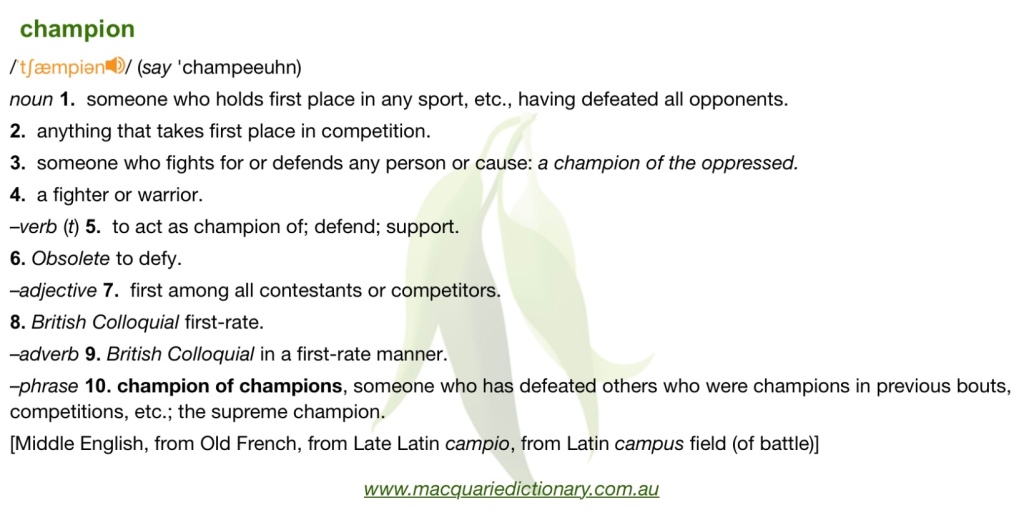
The TV commentators during the Tokyo Olympics have been using the word a lot lately. They seem to be using it in different ways, though, which makes one wonder just what qualifies someone as a champion?
Is just making it to the Olympics enough? Or is it winning a medal? Does one need to make it to more than one major competition? Does a record have to be beaten?
Champion is a word with a number of different senses or meanings, so it can be used in all those ways, and more.

Sadly, there are some commentators who seem to suggest that whoever gets the gold medal is the winner, and everyone else somehow falls short. Even the silver and bronze medals are some kind of consolation prize.
Nothing could be further from the truth. Just by getting there, each competitor is a champion. Each of them is the fittest, strongest, fastest or most accomplished of an entire nation.
The person who comes fourth, or sixteenth, or twenty-first in any given Olympic competition has still achieved something most of us never will.
Similarly, any competitor who has to withdraw because of injury or issues of mental health is completely undeserving of criticism for doing so. Not only have they, too, achieved something most of us cannot do, they have demonstrated that it is entirely possible for even the strongest or fittest person to reach the extent of their ability to go on with a particular pursuit.
As a person with ongoing physical and mental health conditions and acquired disability, I find that enormously encouraging. It is a reminder that it is not only acceptable, but in fact absolutely essential, that we acknowledge our limitations and live within them. That is healthy. That is human. That is an excellent example for the rest of us: you cannot ask anyone for anything more than their best.
So, whether we are watching the Olympics or any other sport, or reading a child’s school report, or considering the performance of a colleague, or responding to the behaviour or words of a public figure, let’s break the habit of automatic criticism and condemnation.
Instead, get some perspective: did they do their best?
How might we reduce any pressure or expectations that might have limited rather than lifted them? How can we encourage them to keep going or do better?
We cannot know what others are going through behind the scenes. We do know, though, that criticism and cruelty can be incredibly destructive: they can main and kill just as effectively as blades or bullets.
Choose to leave your negativity unspoken. If you must speak it, try to be constructive, and try to be diplomatic and discreet.
Choose kindness.
Choose empathy.
Choose love.
Those things never harmed anyone.
And that will make you an absolute champion, no matter what else you do — or do not— do.












